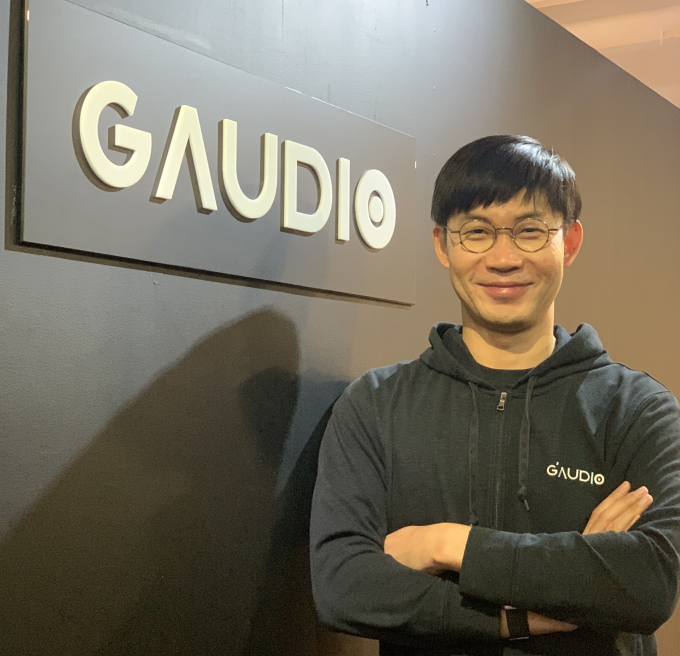Korean startup to rival Dolby in unconquered 3D audio market
By Nov 12, 2020 (Gmt+09:00)
LG Chem to sell water filter business to Glenwood PE for $692 million


KT&G eyes overseas M&A after rejecting activist fund's offer


Mirae Asset to be named Korea Post’s core real estate fund operator


StockX in merger talks with Naver’s online reseller Kream


Meritz backs half of ex-manager’s $210 mn hedge fund


The South Korean startup was launched in 2015 by ex-LG Electronics Inc. audio engineer Henney Oh, Ph.D., along with six Korean audio experts. It received seed capital from SoftBank Ventures and Seoul-based venture capital firm Capstone Partners.
Dolby dominates the world’s audio and surround sound system market, with most film and music content providers using Dolby’s audio technology as the standard. But there has been no dominant player for the 3D audio technology required for virtual reality (VR) content, given technical complications.
“Now that the VR content market has opened up, we saw this as our first chance to challenge Dolby in 30 years,” Oh, Gaudio Lab founder and chief executive, told The Korea Economic Daily in a recent interview.
The audio technology applied to VR content is different from that used for two-dimensional screens such as TVs and smartphones. As the VR user changes their position in a virtual environment, so does the sound location.
Now its customers include not only video and music streaming platforms, but also smartphone makers, including LG Electronics.

To kick off the startup, he attracted six acoustic engineers with doctoral degrees from the country’s top universities Seoul National University and Yonsei University. They were the only two universities in South Korea that ran acoustics labs at the time. Given the low popularity of the major, there were only a few acoustics Ph. D graduates in the country.
But the business environment changed sharply in the summer of 2017, with demand for VR kits growing far slower than expected. Content providers in Hollywood turned cautious about investing in VR content.
“We had to change our business model to keep our company afloat,” Oh recalled.
In 2018, he turned his attention to the exploding over-the-top (OTT) distribution market. To enhance audio quality, OTT video and music streaming platforms need to smooth variations between the loudest and quietest levels of sound.
Gaudio Lab provided its sound systems to domestic music streaming platforms, including SK Telecom-owned FLO and NHN Bugs Corp., as well as internet portal Naver’s video platform Naver TV.
It is also selling its sound technology to smartphone makers. LG Electronics Inc. adopted Gaudio Lab’s sound technology for its latest flagship smartphones LG Velvet and the world’s first rotatable T-shaped smartphone, LG Wing, launched in the first and second half of this year, respectively. Vietnam’s electronics maker VinSmart also recently applied the technology to its flagship smartphone Aris series.
With the technology, 3D stereophonic sounds are delivered through normal headphones connected to a smartphone. That technology creates an immersive audio environment; the listener feels they are inside the music.
While developing VR-related technology, this year Gaudio Lab has also been focusing on developing artificial intelligence-based sound.
“The VR content market will expand for sure. We will develop top-notch audio technology and occupy the market,” Oh said.
Gaudio Lab now has 24 employees, with 6.1 billion won ($5.5 million) in cumulative investment received.
Write to Han-jong Choi at onebell@hankyung.com
Yeonhee Kim edited this article.
-

-
 System semiconductorsFadu, Mobilint emerge as S.Korea's system chip startup dark horses
System semiconductorsFadu, Mobilint emerge as S.Korea's system chip startup dark horsesNov 24, 2020 (Gmt+09:00)
2 Min read -

-
 CES 2021K-startup products sweep CES 2021 innovation awards honors
CES 2021K-startup products sweep CES 2021 innovation awards honorsJan 11, 2021 (Gmt+09:00)
2 Min read -
 Urban mobilityAutonomous driving startup 42dot plans Level 4 self-driving in Seoul
Urban mobilityAutonomous driving startup 42dot plans Level 4 self-driving in SeoulDec 21, 2020 (Gmt+09:00)
1 Min read


